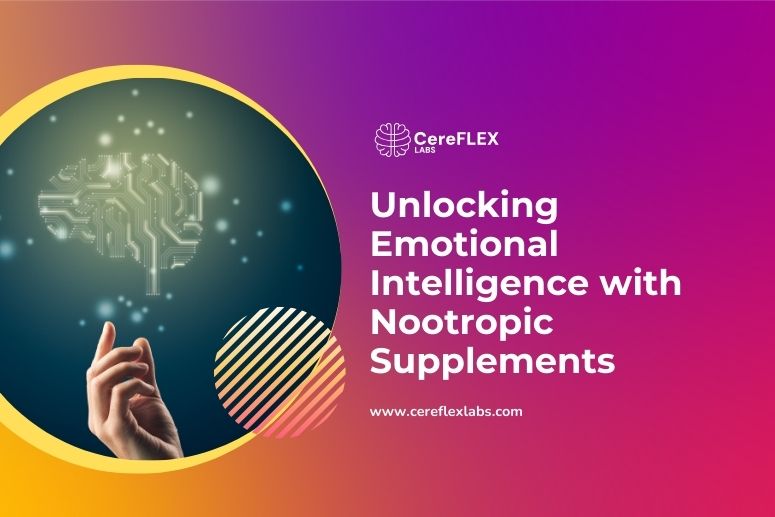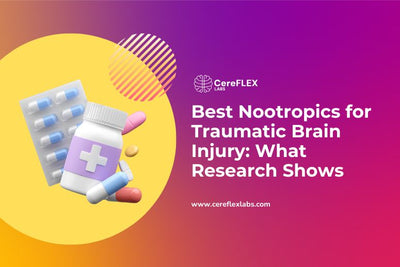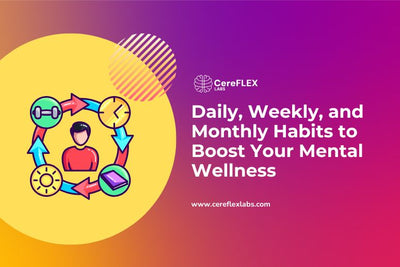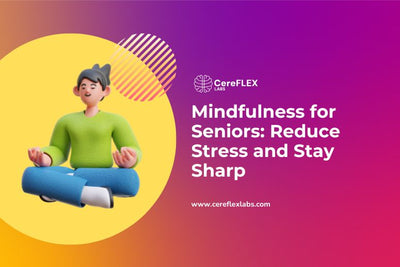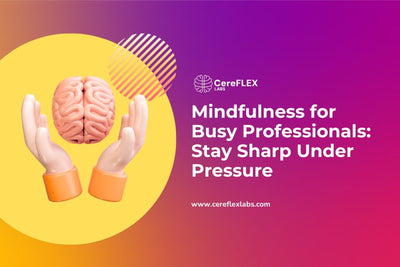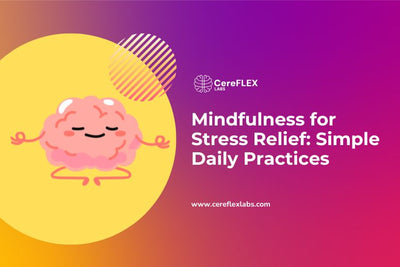Emotional intelligence (EQ) plays a crucial role in how we connect with others, interpret emotions, and navigate social situations. A high EQ strengthens relationships, enhances career success in people-focused roles, and reduces social anxiety.
But what if we could naturally enhance empathy, communication, and confidence in social settings? Nootropics, also known as cognitive enhancement supplements, are gaining attention for their potential to improve social intelligence.
Certain nootropics influence key neurotransmitters like oxytocin, serotonin, and dopamine—chemicals that regulate emotions, foster connections, and boost self-confidence. By optimizing brain chemistry, these supplements may help you feel more at ease in conversations, build deeper relationships, and minimize social anxiety.

Emotional Intelligence and Social Skills
Emotional intelligence (EQ) is the ability to recognize, regulate, and express emotions—both in yourself and others. It plays a vital role in social interactions, decision-making, and relationship-building.
Empathy allows you to understand and share the emotions of others, fostering deeper connections. Strong social skills enable effective communication and relationship-building, which are crucial for both personal and professional success. Self-awareness and emotional regulation help you stay composed and confident in social situations, making it easier to navigate challenges.
A well-developed EQ strengthens relationships, reduces social anxiety, and enhances leadership, teamwork, and career growth. It also improves communication, negotiation, and conflict resolution, allowing for more meaningful interactions. While EQ can be developed over time, some nootropics may support emotional balance, boost empathy, and increase confidence, making social interactions more natural and fulfilling.
Nootropics and Emotional Intelligence
Emotional intelligence is the ability to understand, regulate, and respond to emotions—both in yourself and others. Some nootropics may support this skill by influencing brain regions responsible for emotional regulation, enhancing empathy and improving emotional awareness.
Certain nootropics affect neurotransmitters like dopamine, serotonin, and oxytocin, which are crucial for mood, social bonding, and stress management. By balancing these chemicals, nootropics may help reduce anxiety, improve emotional stability, and foster stronger social connections.
In addition to promoting emotional balance, nootropics can boost motivation and elevate mood by increasing dopamine levels, leading to greater well-being and a more positive social presence. They may also enhance communication skills by reducing social anxiety and improving verbal fluency, making it easier to express thoughts clearly and build meaningful relationships.
Which nootropics help enhance empathy and social skills?
Certain nootropics may enhance emotional intelligence (EQ) by improving cognitive flexibility, emotional regulation, empathy, and social awareness. These supplements can help reduce stress, boost mood, and refine communication skills, making social interactions more natural and fulfilling.

L-Theanine
L-Theanine, an amino acid found primarily in green tea, promotes relaxation without drowsiness by increasing alpha brain waves. Research suggests it enhances serotonin, dopamine, and GABA levels1, which contribute to emotional stability and well-being.
This nootropic is particularly useful for social intelligence, as it helps reduce stress and anxiety in social situations. By fostering a calm and focused state, L-Theanine enhances the ability to interpret social cues and respond thoughtfully rather than impulsively.
For those who experience social anxiety or feel overwhelmed in conversations, it can provide a natural way to stay engaged and confident. Many people turn to L-Theanine for managing social anxiety naturally, as it supports relaxation while maintaining mental clarity.
Rhodiola Rosea
Rhodiola Rosea is a powerful adaptogen that helps the body manage stress more effectively. It lowers cortisol levels while increasing dopamine and serotonin, which are essential for motivation, emotional resilience, and a positive mood.
Studies show that Rhodiola Rosea can alleviate chronic fatigue and burnout-related symptoms. By promoting emotional balance and reducing stress, it allows individuals to remain composed under pressure, fostering greater self-awareness and improved emotional responses in social interactions.
Ashwagandha
Ashwagandha is well known for its ability to lower cortisol levels and enhance GABA activity, leading to a greater sense of calm. Clinical trials indicate that it may help reduce stress and anxiety, making it beneficial for emotional intelligence.
By promoting emotional stability, Ashwagandha helps individuals become less reactive to negative situations. It enhances self-awareness and emotional control, allowing for more measured responses in social settings. Those prone to stress, irritability, or emotional overwhelm may find it particularly useful for maintaining balance.

Bacopa Monnieri
Traditionally used in Ayurvedic medicine, Bacopa monnieri is known for its cognitive and emotional benefits. It supports emotional regulation by lowering anxiety and enhancing adaptability to stress.
Research has explored the effects of Bacopa monnieri on cognitive function in older adults, with some studies suggesting potential benefits, though findings remain mixed and require further investigation.4
By fostering emotional balance and resilience, this nootropic makes it easier to remain calm under pressure, improving the ability to navigate complex social situations with confidence.
Lion’s Mane Mushroom
Hericium erinaceus (lion’s mane) has been studied for its potential to reduce stress and enhance cognitive performance, which are factors that can influence aspects of emotional intelligence, such as emotional regulation and mental clarity. However, more research is needed to determine its specific effects on emotional intelligence.
Key Neurotransmitters Involved in Empathy and Social Interactions
Neurotransmitters play a crucial role in emotional intelligence and social interactions. These chemical messengers regulate mood, motivation, empathy, and stress response. Some nootropics help balance these neurotransmitters, leading to improved emotional stability, greater social confidence, and deeper connections with others.
Dopamine
Dopamine influences motivation, mood, and the brain’s reward system. Low levels can cause fatigue, confusion, and mental health challenges, while optimal levels support a positive mindset, stress management, and problem-solving. These functions are all regulated by neurotransmitters and brain function.
Higher dopamine levels contribute to increased enthusiasm, sociability, and a greater likelihood of forming meaningful relationships.
Nootropics that influence dopamine:
- L-Theanine
- Rhodiola Rosea
- Citicoline
- Caffeine
- Lion’s Mane (limited direct evidence)
Serotonin
Serotonin is essential for emotional balance, mood regulation, and social ease. When serotonin levels are low, individuals may experience anxiety, social withdrawal, and difficulty connecting with others. Increasing serotonin can promote relaxation and enhance one’s ability to engage in positive social interactions.
Nootropics that boost serotonin:
- 5-Hydroxytryptophan (5-HTP)
- Rhodiola Rosea
- St. John’s Wort
GABA
GABA (gamma-aminobutyric acid) is the brain’s primary inhibitory neurotransmitter, responsible for promoting relaxation and reducing stress. Low GABA levels can contribute to anxiety and difficulty in social settings. By enhancing GABA activity, certain nootropics help individuals feel calmer and more comfortable in conversations.
Nootropics that enhance GABA:
- L-Theanine
- Bacopa Monnieri
- Phenibut
Scientific Evidence on Nootropics for Social and Emotional Benefits
A randomized, triple-blinded, placebo-controlled study investigated how a dietary nootropic influences cognitive performance, emotional regulation, and physiological responses in young, healthy adults. The study involved 26 participants, who were given either a nootropic supplement or a placebo. Thirty minutes after ingestion, they completed cognitive tests while researchers measured their emotional state, heart rate (HR), and heart rate variability (HRV).
The results showed that the nootropic significantly improved cognitive functions, including processing speed, inhibitory control, spatial working memory, and cognitive flexibility. Participants who took the nootropic performed tasks more quickly and accurately, demonstrating better information processing and adaptability. Additionally, they reported enhanced creativity, a more positive mood, and reduced feelings of sadness compared to the placebo group.6
How This Relates to Social and Emotional Intelligence
Stronger cognitive abilities and emotional balance translate directly into improved social intelligence:
✔ Enhanced cognitive processing allows for quicker adaptation in conversations, improving responses and emotional awareness.
✔ Better emotional regulation helps individuals remain calm and composed in social situations, rather than reacting impulsively.
✔ Increased creativity and positivity lead to more engaging communication, better storytelling, and improved problem-solving in social interactions.
✔ Lower levels of sadness and stress contribute to higher social confidence, helping individuals establish a more positive presence in their relationships.

Who can benefit from nootropics for emotional intelligence?
Nootropics that enhance empathy, emotional control, and social confidence can be valuable for individuals looking to improve their interpersonal skills. These supplements may help regulate emotions, reduce stress, and refine communication, making social interactions more natural and effective.
Professionals in Social Fields
Therapists, managers, salespeople, and teachers rely on strong communication and emotional awareness in their daily interactions. Nootropics can support mental clarity, active listening, and emotional regulation, enabling them to engage more effectively with colleagues, clients, and students.
Individuals with Social Anxiety
For those seeking non-drug alternatives, certain nootropics may help reduce nervousness and promote relaxation. By lowering stress levels, they can make social situations feel more manageable, fostering confidence in conversations and group settings.
Biohackers and High Performers
People focused on optimizing their mental and social abilities can use nootropics to enhance verbal fluency, emotional resilience, and cognitive flexibility. This allows for more engaging discussions, better adaptability in conversations, and improved overall social presence.
Safe and Effective Use of Nootropics
Nootropics offer promising short-term benefits, but their long-term effects are still being studied. To maximize their advantages while minimizing risks, responsible and mindful use is essential.
Excessive or improper use may lead to tolerance, dependence, or interactions with medications. Some nootropics can lose effectiveness over time, and others may interfere with prescription drugs, posing potential health risks. To prevent these issues, it is recommended to cycle nootropic use—taking breaks between periods of supplementation to maintain effectiveness and avoid dependency.
For optimal results, nootropics should be combined with healthy lifestyle habits, including adequate sleep, stress management, and proper nutrition. A balanced approach ensures that cognitive and emotional well-being are supported naturally, helping individuals safely enhance their social skills, emotional resilience, and mental clarity.
Conclusion
Enhancing empathy, social confidence, and emotional intelligence can significantly improve both personal and professional relationships. By targeting key brain chemicals such as oxytocin, serotonin, dopamine, and GABA, nootropics may naturally support social skills, mood regulation, and cognitive flexibility.
For those seeking a science-backed approach to cognitive enhancement, CereFlex Labs' AM/PM Protocol provide targeted support throughout the day. The AM Brain Morning Formula enhances focus and mental clarity, while the PM Cognitive Support Formula aids in relaxation and long-term brain health.
Formulated with antioxidants, essential vitamins, and brain-boosting compounds, this dual formula supports memory, circulation, and overall mental performance. Whether you're an athlete, a professional, or simply looking to improve cognitive and social function, CereFlex Labs offers premium, research-backed nootropic solutions to help you perform at your best.
